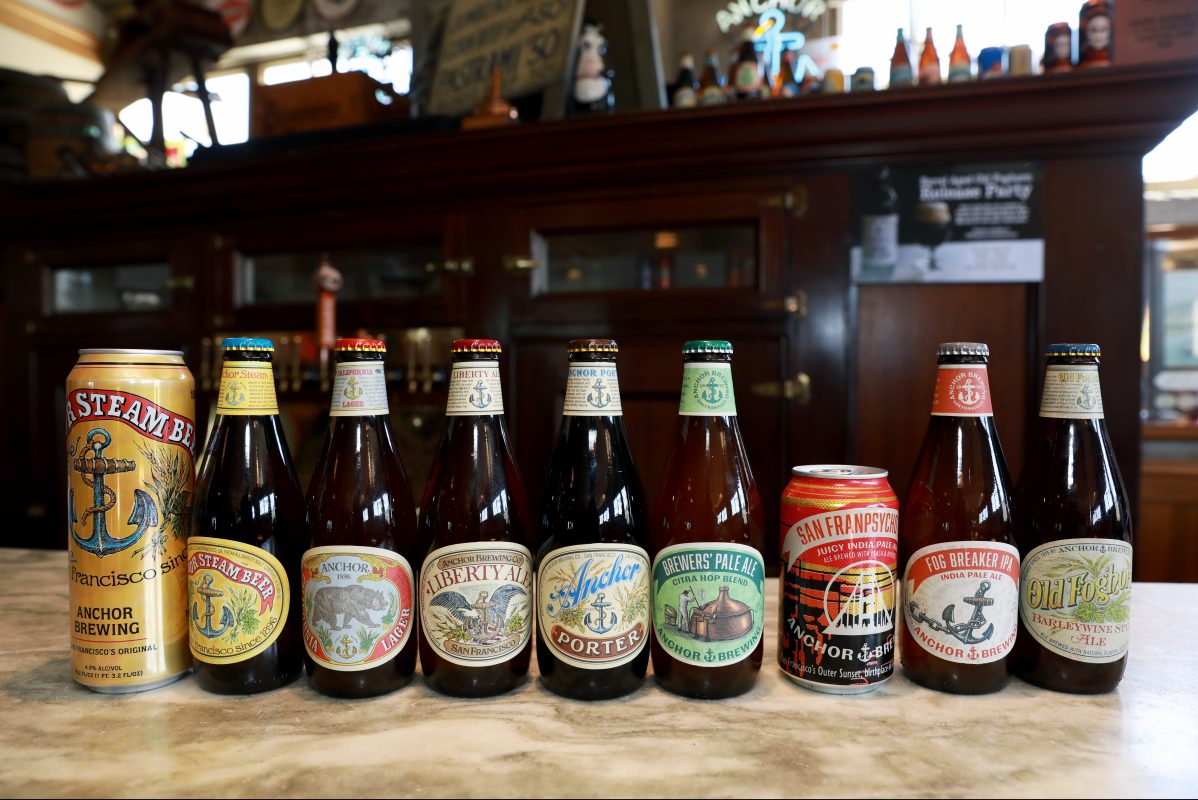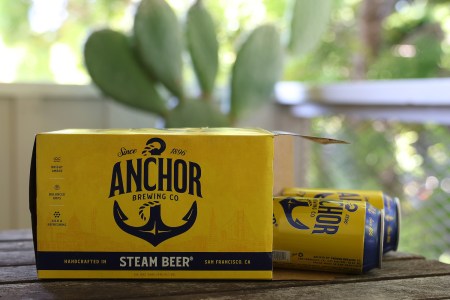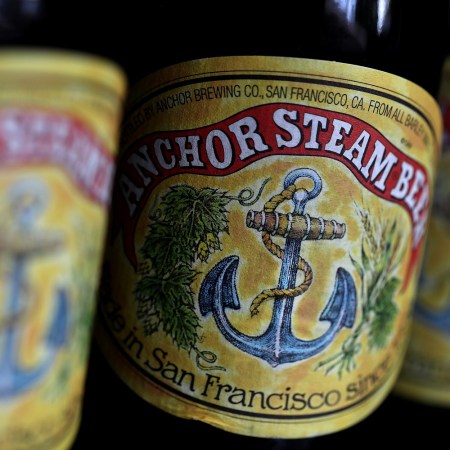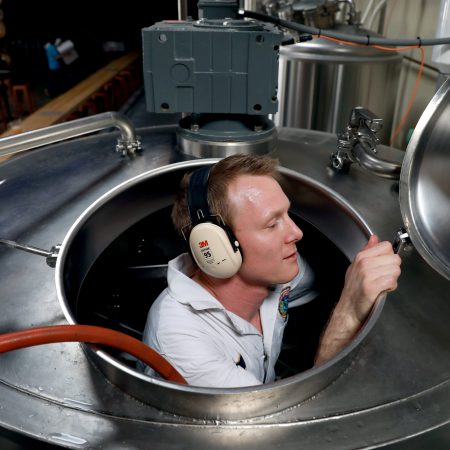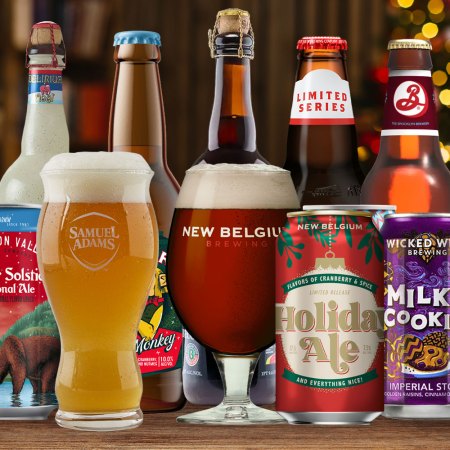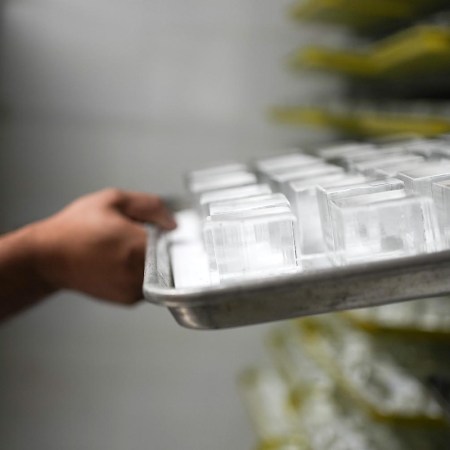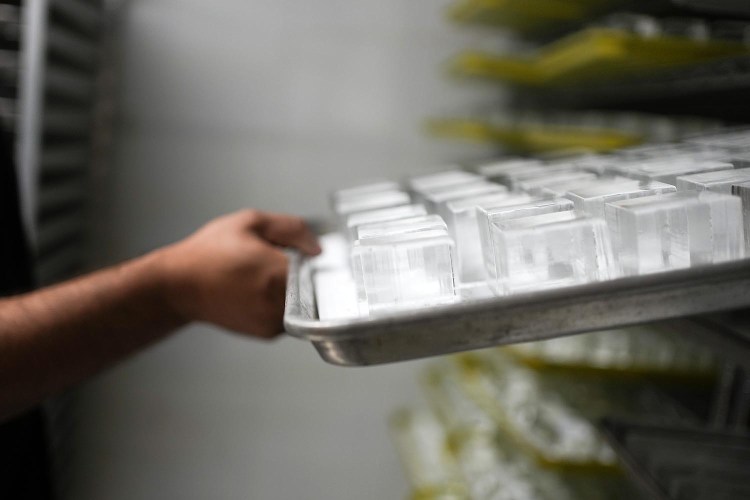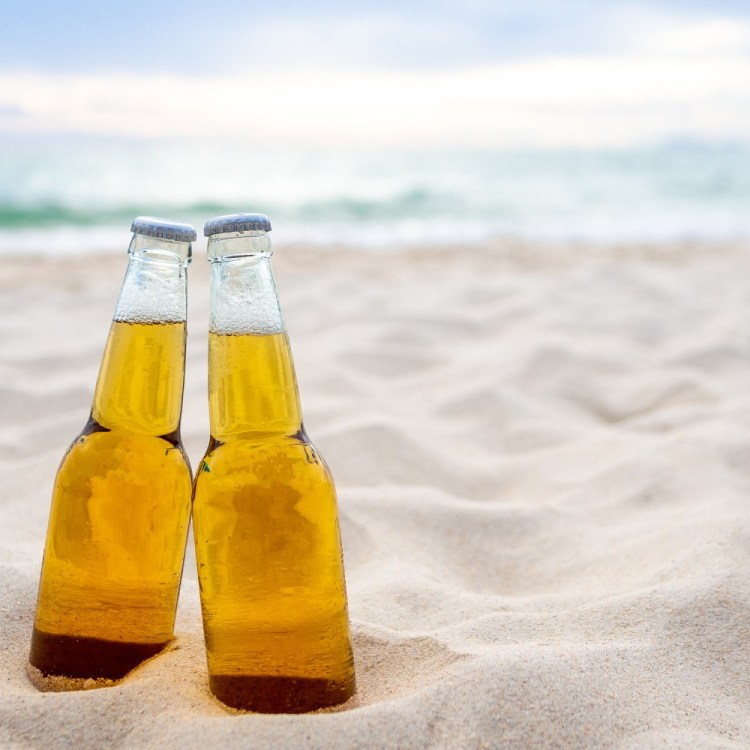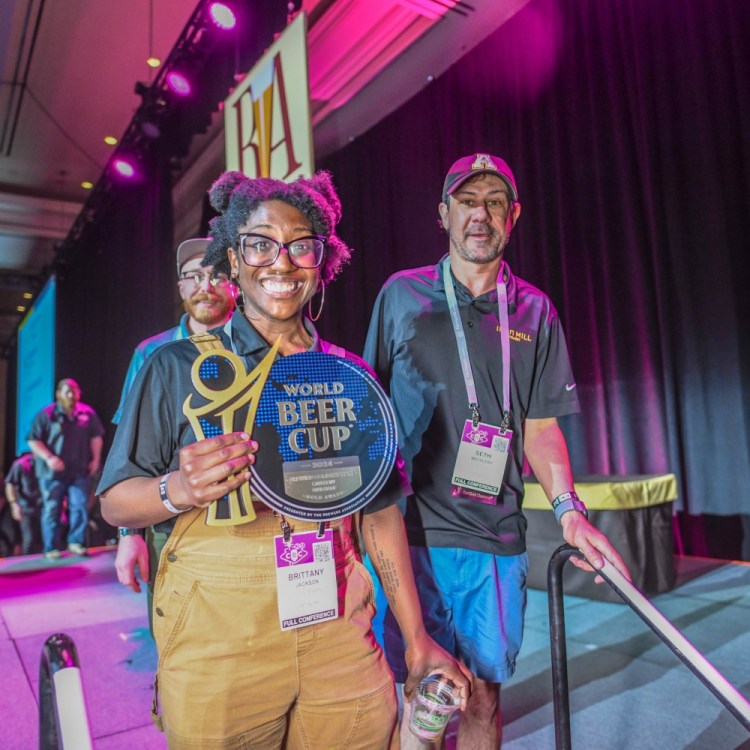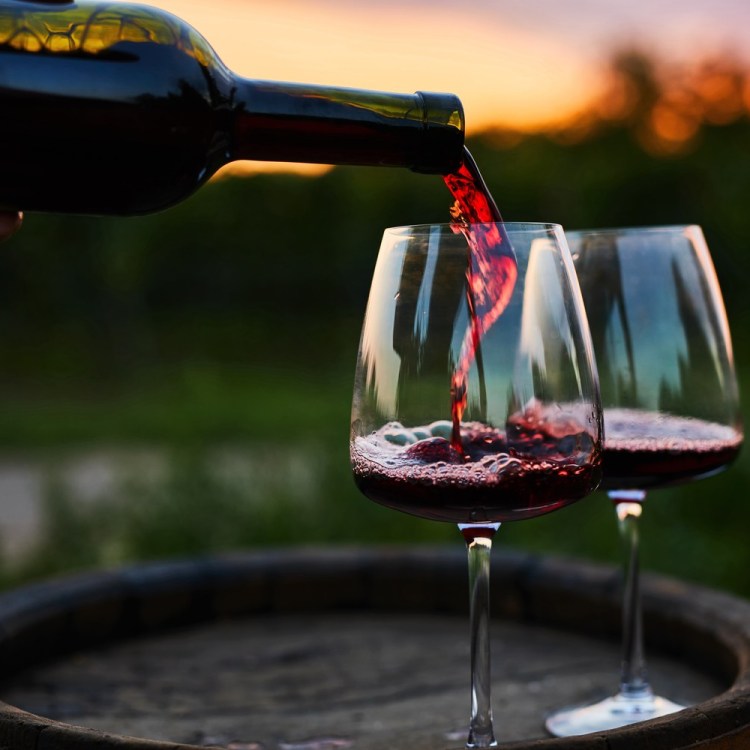The story unfolded overnight in a stop-the-presses manner we don’t often see in craft beer, most of us waking up on the morning of Wednesday, July 12 to the news: Anchor Brewing would be closing up shop for good.
VinePair reporter and author of drinks business newsletter Fingers Dave Infante broke the story, as he had done with the news just one month ago that the brewery was ending production of its beloved Christmas Ale and ceasing distribution outside its own state of California. For even a casual Anchor fan, the one-two punch could cause some whiplash. For employees, this closure may not have been a shock — per Infante, Anchor workers have seen the writing on the wall for the past few years through parent company Sapporo USA’s actions — but it does seem to have come without warning, despite Anchor’s press release claiming staff was given 60-day notice to help smooth transitions. In fact, Infante spoke with an employee who only learned of the shutdown upon receiving Infante’s text after seeing the press release.
Anchor employees suddenly without jobs is the most immediate loss — that they unionized back in December 2020 is one win, as it should help them get fair severance packages. But there’s plenty more to unpack when reflecting on what the end of Anchor Brewing means.
“Anchor made waves, and not just because Fritz Maytag bought it in the 1960s or because they revolutionized beer styles in the 1970s,” says beer historian and writer Brian Alberts. “Anchor employees’ unionization efforts from just a few years ago were significant for craft beer history. I wouldn’t be surprised if its closure, once we fully process and understand it, reveals its own distinct significance.”
Anchor Brewing has a lifespan that’s, frankly, staggering for a brewery: 127 years. It has been both an icon of its hometown San Francisco and of craft beer, considering that Anchor truly blazed the trail for modern American craft beer. “Helen of Troy may have been the face that launched a thousand ships, but Fritz Maytag at [Anchor Brewing] launched nearly 10,000 American breweries,” tweeted Theresa McCulla, beer history curator at the Smithsonian National Museum of American History.
According to Anchor’s website, the brewery’s roots stretch back to the Gold Rush. Gottlieb Brekle came to San Francisco from Germany, eventually buying a saloon in 1871 he’d turn into a brewery. In 1896, another German brewer, Ernst F. Baruth, and his son-in-law, Otto Schinkel, Jr. bought that space and named it Anchor. Over the years, Anchor survived both Baruth and Schinkel dying suddenly in the same year — 1906, also the year of San Francisco’s great earthquake and an ensuing fire that destroyed the brewery’s original space — as well as Prohibition, the Great Depression and war. The rising dominance of macro beer seemed to have finally killed Anchor in 1959; it was revived just a year later by yet another buyer. This owner, too, was ready to call it quits in 1965, which is when a Stanford grad named Fritz Maytag swooped in to save the brewery. Anchor did, after all, make his favorite beer, its iconic Steam Beer. The amber style — toasty and caramel-y with light herbal, floral and fruity aromas — was named for the pre-refrigeration method of fermenting beer outdoors, and the steam that would rise off the beer as it cooled in the San Francisco night air.
Within a decade of taking Anchor over, Maytag had not only begun bottling Steam Beer for the first time, but had added Anchor Porter, Liberty Ale, Old Foghorn Barleywine Ale and Christmas Ale to the portfolio. The Christmas Ale became a classic tradition for beer lovers, and Liberty Ale, the first dry-hopped pale ale brewed in the United States, paved the way for the IPA. Maytag’s work at Anchor quickly began inspiring others to begin brewing and open their own breweries.
Anchor Brewing’s Closure Is a Hit to Craft Beer’s History and Future
The iconic brewery that helped define American craft beer is being sold for scraps“[Anchor] took on this mythology as a guiding star for nascent craft brewers,” Alberts says. “[It] helped establish values like smallness, independence and innovation that still carry a great deal of unofficial weight.”
Cut to 2017. Sapporo USA, the American subsidiary of the Japanese corporation, acquired Anchor for $85 million, per Brewbound. Based on Infante’s breakdown of Sapporo’s actions (or, sometimes, inaction) from that point on, it’s not a stretch to argue that the corporation finally tanked a seemingly unsinkable brewery that had weathered so much in 127 years. There was conflict with the unionizing employees and disagreements over necessary brewing equipments repairs and upgrades — instead, Sapporo seemed focused on brewhouse automation and wanted Anchor to be able to brew Sapporo Beer, a lager the business didn’t have the capacity for. This tone-deaf priority revealed just how little a real understanding of or appreciation for Anchor Sapporo actually had. Underlining, bolding and italicizing that evident disconnect? Rebranding Anchor in 2021, much to many fans’ horror. Then came the June 2023 announcement of no more Christmas Ale and no more Anchor at all outside of California; a mere month later and here we are, with Anchor citing for its closure familiar tunes like the pandemic, inflation and competition.
Infante calls this turn of events “unceremonious,” and there’s no better way to put it. Craft beer enthusiasts can wax poetic about Anchor’s legacy and impact, which were no doubt great. But it was something as mundane as a corporate acquisition that ended up proving neither legacy nor impact can keep a brewery afloat in this industry, in this climate.
Reporting for Good Beer Hunting on the excess supply of used brewhouse equipment hitting the market due to increasing brewery closures, Kate Bernot effectively hammers home the reality of craft beer in 2023: after decades of growth and optimism, perhaps a bit too much optimism, the industry’s growth has slowed and may continue to do so until it grinds to a halt. A major factor is too much competition, and not just from fellow breweries, but other drinks like RTD cocktails.
We’re seeing a culling of sorts, with mergers and acquisitions both of the corporate variety and between multiple craft breweries now par for the course. Sapporo USA’s arguable running into the ground of Anchor feels dramatic because of Anchor’s history, but the biggest bummer might be just how banal a sign of the craft beer times it is. Struggling breweries will continue to get snatched up in acquisitions, and not every acquiring entity will know what to do with them.
“I don’t know if there’s anything fully unique about Anchor’s circumstances,” says Alberts. “Many other breweries have experienced buyouts, struggled with falling sales, faced closure and so on.” However, he adds, the fact this cruel if common twist of fate has now come for our “original” craft brewery might hit home harder than other acquisitions and closures, and so might be a louder wake-up call to industry members and fans alike. “It punctuates what was already true: that craft beer isn’t the young, disruptive maverick it used to be. It’s messy and adolescent, often operating on a spectrum of grey. Anyone still hiding in myths can’t any longer. We can’t go home again.”
The truth was already there. Good job, craft beer, you made it out of the gates and you’re a full-fledged industry now. But that comes with a whole new set of struggles, from over-saturation in the market to the wild goose chase after fickle consumer preferences. We’re far away now from craft beer’s scrappy origin story and its stick-it-to-The-Man ethos that was easy and fun to rally behind. Now, craft beer sometimes is The Man, or must be bought by The Man to survive, or fails in the face of other beverages people are more excited about now.
Anchor’s closure may not be unique, but the gravity of its 127-year journey ending in liquidation makes it impossible to ignore that this industry’s salad days are behind it. That doesn’t mean we’ll lose all our breweries, or that we won’t continue to enjoy some great, independently made beer. But we stand to see a smaller number of breweries in a wider variety of business arrangements, often also making beverages like hard seltzer and canned cocktails. And long-running legends like Anchor may live on in our memories instead of our fridges, our nostalgia for them only enhanced by their bitter ends.
Join America's Fastest Growing Spirits Newsletter THE SPILL. Unlock all the reviews, recipes and revelry — and get 15% off award-winning La Tierra de Acre Mezcal.
